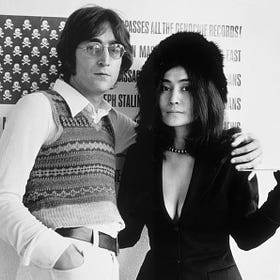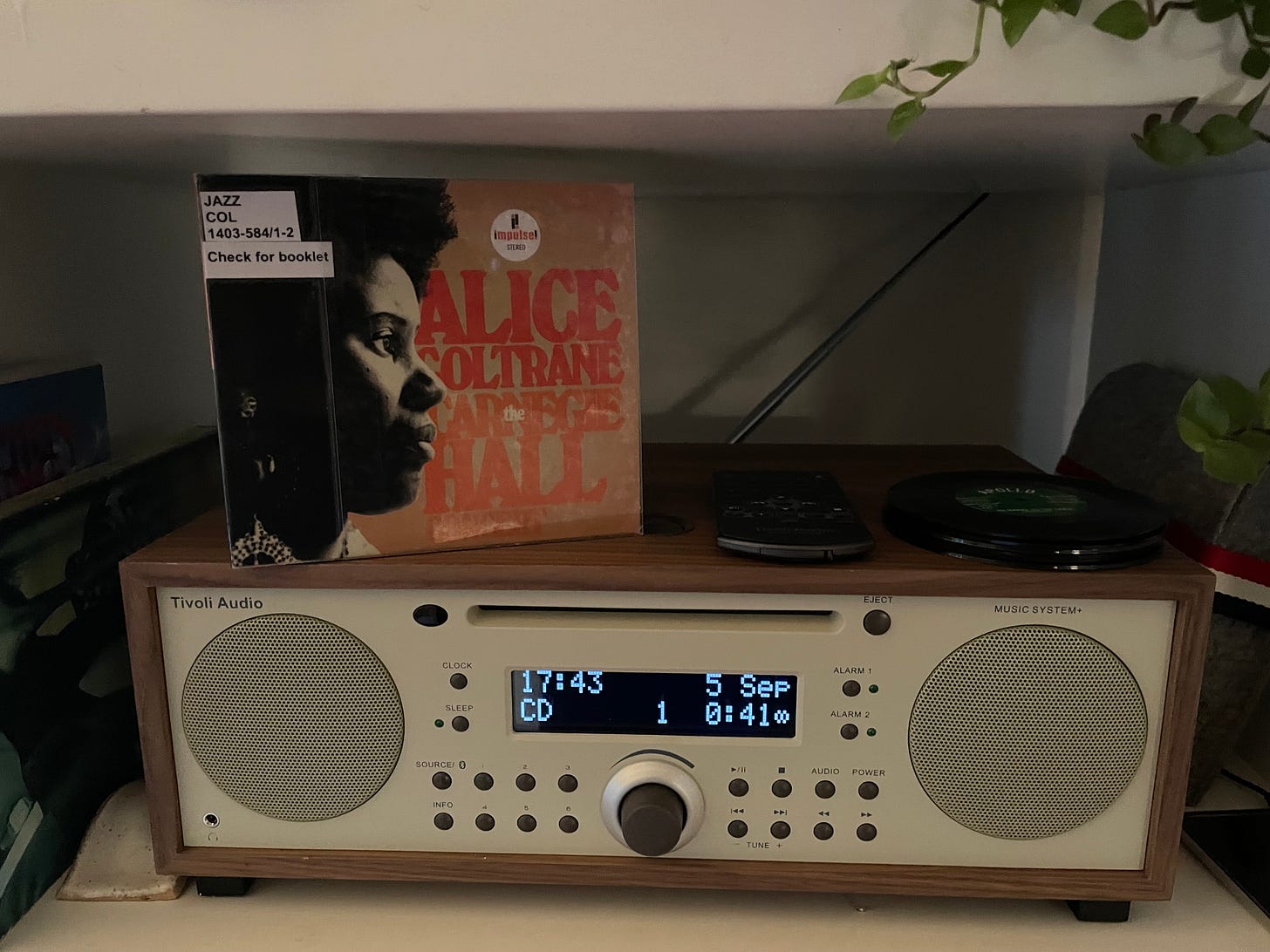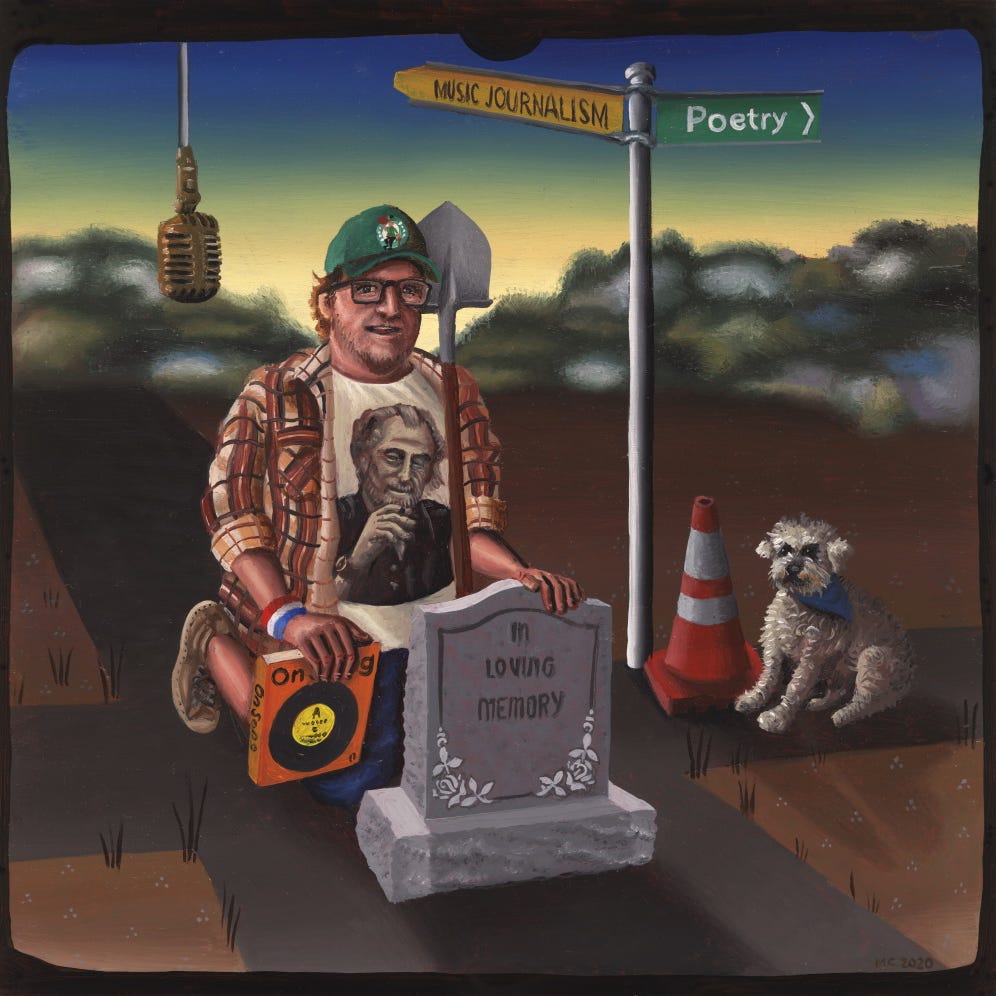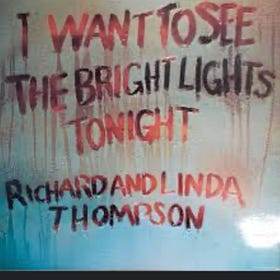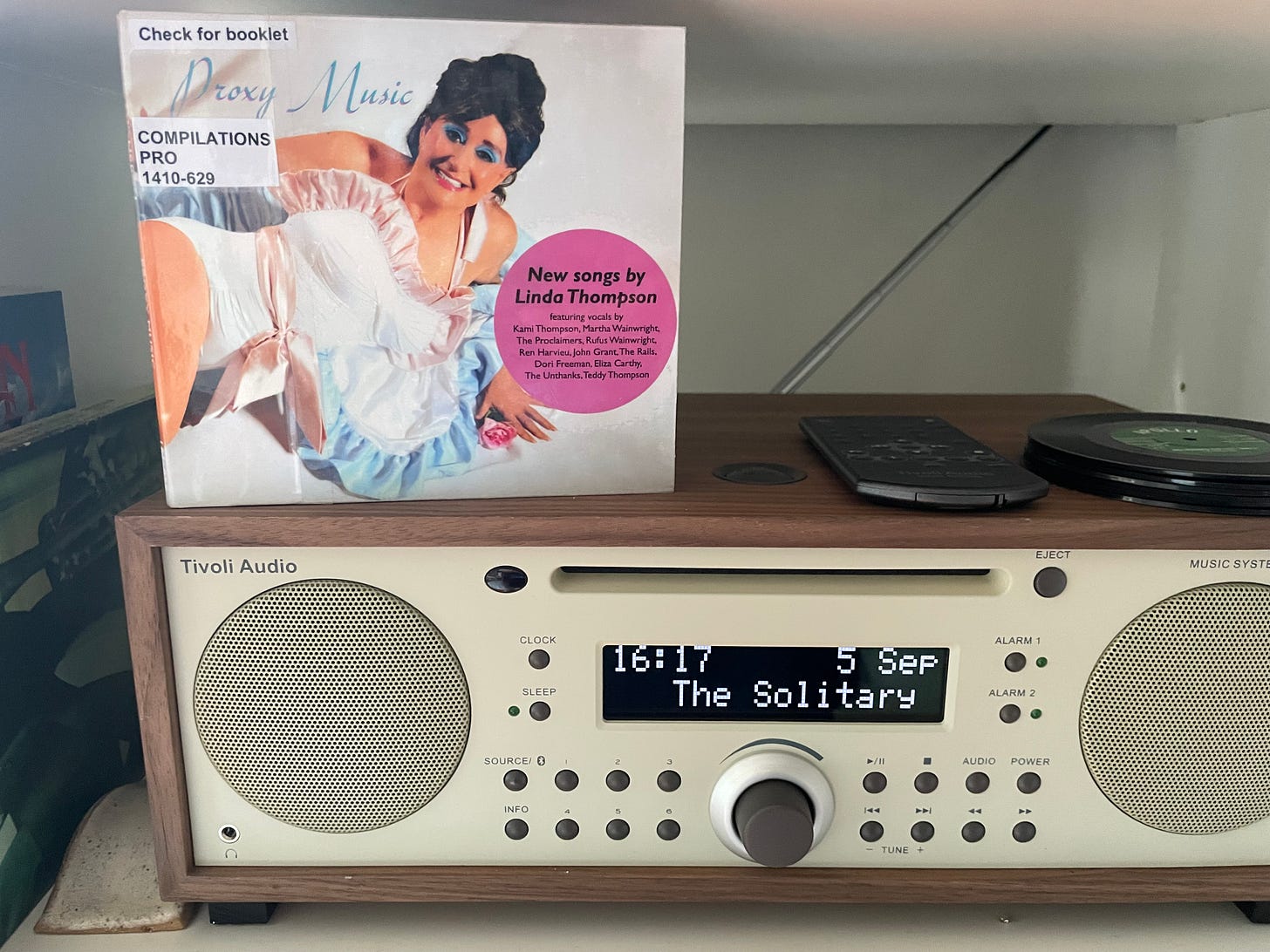Two Brilliant New Albums Buried In Different Ways
Friday is fun because it’s music so there’s links and playlists. Today, thinking about new ways into listening, with new albums that arrive from the past.
I was listening to Stevie Wonder Presents Syreeta the other day, first time hearing it in a while. I first hunted this album out because I had to hear the Stevie Wonder song Cause We’ve Ended As Lovers, perhaps the standout track on Jeff Beck’s album, Blow By Blow. It was years before I found out that the Stevie Wonder composition was actually on an album by the singer Syreeta Wright.
Wright and Wonder had been married. By the time of her 1972 debut, produced (if not “presented) by Stevie Wonder, the couple had divorced. They were only husband and wife for 18 months. But they continued to work together for a while, Wonder writing material with and for Syreeta, playing on her albums, producing, and in the case of her best known, sophomore record, he even puts his name on the banner — it might look like Wonder is taking credit, but he was using his name, at the height of his fame and artistic peak, to help set Syreeta up following their divorce. (There’s a cynical take on that too, he was ordered to pay her out and decided to just make this record as ‘payment’; a way of jettisoning her).
For context, by 1974, Wonder’s hot run, on the back of his teenage prodigy years, includes four amazing records in a row in just three years. And in 1974 alone he writes, records and releases this Syreeta record, his own masterpiece Fulfillingess’ First Finale — and the absolute banger Tell Me Something Good for Chaka Khan and her band Rufus.
But Stevie’s a freak. We know that. And his second album with/for Syreeta is now 50 years old. A mere footnote in his career. Barely mentioned, little known really.
But really, I should have started today’s newsletter with a celebration of Syreeta, co-writer of many of the songs on her albums, and singer of many great Motown demos for other artists. Co-writer of the mini-masterpiece of a song It’s A Shame, by The Spinners.
It is indeed a shame that I couldn’t do that — had to tell you the Stevie Wonder story. My defence, of course, is that I’m a Wonder fan, and I only knew about Syreeta because I was on the hunt for a Stevie Wonder song all those year ago in the wild, Wild West of pre-internet, we roamed for songs, picking up the scent where we could (second hand stores, most likely).
But my defence is still exactly that: A defence. A move. A block.
I’m not saying Syreeta deserves a reappraisal — this album now is 50 and it’s not entirely a masterpiece, more a curio (but gosh it’s pretty great still). And the singer that made the songs her own has been dead for 20 years at this point.
But what does it say that the wife — or in this case ex-wife — of the musical legend doesn’t get her own story even though she’s an artist too. She’s forever bundled.
Way back at the start of this newsletter-writing caper, I made a case for Yoko Ono as a serious artist, icon, and musician. And I’m glad I did.
All I Am Saying Is Give Yoko A Chance!
I wasn’t the first to have these thoughts about Yoko, but I remember sharing them not only here but also on Facebook, and it damn near went viral (well, in my world it was the closest thing to it). People love to share those repugnant memes of Yoko throat singing and improvising, and they’re so sure they’re clever mocking a type of music they have no facility for, would never actually listen to. It just kinda boiled up and really got on my nerves.
I was thinking about that when I was listening to Stevie Wonder Presents Syreeta — specifically whether it was annoying being written off as just the (ex) wife. (And then I continued to write her up as exactly that…)’
*******************
Two new albums that have been hidden for some time have arrived in my world recently. Both are by women who were married to towering giants in music. Both of the women were part of the act with their husbands for a time, and have had their own solo careers. They will be forever associated with their (more famous) husbands/ex—husbands.
I guess this is all sorta just swirled in my brain as I checked out these new (old) albums and listened to the old (Syreeta) one as if it was new…
Alice Coltrane was a jazz pianist and harpist, she met John Coltrane in the early 1960s, they married in 1965. She became a full time member of John’s band, as well as mother to their three children together. John died in 1967 leaving her to raise her four children (one from a previous marriage) and start her own career as bandleader. She gave work to many of the members from John’s last band, repurposing the final line-up for her own needs. She also used her career to pay tribute to her late husband — he of course as towering and influential in jazz as Stevie Wonder is in funk and pop music.
Alice Coltrane is a legend in her own right. And the work she did in the late 1960s and early 1970s is still being discovered. Sought out, in many cases, by people less familiar with John, or maybe not even interested. Alice had been a big part of John’s spiritual journey, and had helped him in moving towards a freer sound; John had opened Alice’s ears to surprising new possibilities within music too.
I wrote about Alice Coltrane’s phenomenal 1971 record, Journey In Satchidananda again recently as part of a dig into some of the records I could never bear to be without:
Sometime in the late 1990s I went all in on Alice Coltrane’s music. Universal Consciousness, A Monastic Trio and Satchidananda are all albums I love so dearly.
A couple of recent compilations and archival releases have pointed to the spirituality that informs Alice’s music, as well as unearthing newly discovered recordings.
The latest is The Carnegie Hall Concert, a 1971 set of recordings that features a couple of the tracks from Satchidananda paired, on a double album, with a couple of John’s compositions from towards the end of his life and career.
Things start serene and calm and move from there to the shronking-deep epiphanies John was carving directly from his soul. What finer statement can there be from an extraordinary musician such as Alice Coltrane but to be there in service — still — to the music made by her late husband. A performer in her own right, a mother, a bandleader offering directions, income, and closure to the players that had worked with that late husband.
As wild as the version of Africa gets, and saxophonists Archie Shepp and Pharoah Sanders both give it their all, it’s Alice that is the anchor, it is Alice that is also the searchlight. Her playing here is otherworldly. She is playing outside of her skin.
The world hasn’t heard from Linda Thompson in quite some time. She’s alive, and mostly well, beyond the terrifying and debilitating condition for an artist where she has literally lost her voice: Spasmodic or Hysterical Dysphonia. It’s a stage-fright of the heart that manifests in a loss of the voice, the muscles that drive the vocal cords going into spasm — a deep, and lasting trauma. It has plagued Thompson for decades.
When the world did hear from Linda Thompson, it was primarily as the singing partner to her then-husband, Richard Thompson. He had been in Fairport Convention, and then released a solo record or two, before marrying Linda and the pair released a handful of exquisite modern folk records. I recently celebrated the 50th Anniversary of their debut together:
Happy 50th: I Want To See The Bright Lights
A nearly perfect, must-hear, should-have album.
There were gems scattered across their finite catalogue, and of course they’re often written about for their final album together; their marriage gone, their relationship ruined, they sang songs to and at and about one another with the sort of force usually reserved for Fleetwood Mac. Different of course, being folk. More cutting, if anything.
It might be pushing it to say that Richard Thompson is the Stevie Wonder or John Coltrane of modern folk, but some guitarists would certainly agree, and it’s no exaggeration to call him both important and influential. He’s prolific too, or at the very least a solid work. His own idiosyncratic solo career includes film compositions, a variety of band line-ups and configurations and both acoustic and electric projects, as well as many hybrid forms.
While Richard stayed in the conversation — albeit a musician’s musician rather than any sort of pop-star or celebrity — Linda released just four studio albums between 1985 and 2013. She’s like a one-woman Blue Nile. They’re nice records too. I adore 2002’s Fashionably Late, because, as the title suggests, that’s when I arrived to her music.
And though there was an album after that, and it was worth a fan’s time also, I hadn’t expected to hear anything else from Linda. She recorded her answers for a podcast about the 50th birthday of the Bright Lights album and had her daughter read them.
So it was with some shock that I found out she had a new album in 2024.
Or did she?
The brilliantly titled, extraordinary sleeved Proxy Music features a bunch of brand new songs written by Linda, but she doesn’t (really) sing a word. It is, instead, almost a tribute album to herself, a cast of family and friends driving the music - ex-husband Richard is in there, son Teddy (a musician in his own right) and daughter Kami (also a singer/songwriter, but she really has inherited something very close to her mother’s voice). The record features contributions from Martha and Rufus Wainwright, The Unthanks, John Grant, and The Proclaimers too.
Linda’s in there — just — on one song. But she’s had a hand in the entire record. She has designed a tribute to herself, which you can enjoy without worrying about people not quite correctly getting to the hits in the right way, since the songs are brand new and previously unheard. And that cover image, and title — a play on Roxy Music, and a direct reference to that band’s first album sleeve:
The courage to live again through the voices of others, to have them lift you up. The decision to own the album, and then to poke fun at yourself, or least the concept behind it all, because best to not be too reverent when you’re already being hushed by default, right? Brilliant. Absolutely brilliant. And so much of it is too. Music-wise. Great songs. Astonishing performances.
This type of reflection — where one writes, plans, produces, envisages, and yet cannot be the voice to put it out into the world…
I’ve loved connecting with these two new albums — one buried in the past and recently excavated, one hidden by dysphonia and realised in a whole new way by a supportive cast of friends and family. These are albums by women still connected to the men they married, and were in some way defined by; these offer new ways of listening — and huge rewards in both instances. (And I really loved listening to Syreeta again after many years too).
It’s Friday, so it’s time for the weekly playlist. We are at episode/volume 185:
You’ll spot the theme of this playlist easy enough, consistent with the content of today’s newsletter. But also just a great set of tunes by some very talented artists, and in some cases, some of my favourites. Just like any other week playlisting really…
Thanks for reading, and listening. And have a great weekend.




